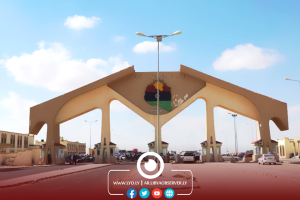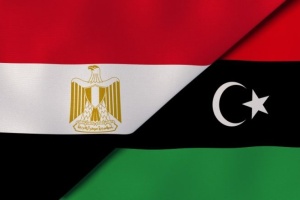The Director General of the Joint Libyan-Egyptian Economic Chamber, Mohammed Rafi, has said that the Chamber is in the process of considering the launching of a joint free-trade zone between Egypt and Libya in the Al-Jawf region, which is located in southeastern Libya, in cooperation with the Unions of Chambers of Commerce and Industries.
In a statement issued by the Chamber regarding the meeting of the Arab Cooperation Committee with the Union of Egyptian Industries, in the presence of the Acting Chairman of the Board of Directors of the Chamber of Commerce, Industry and Agriculture in the parallel government, Rafi indicated that there were several customs' changes, especially regarding agents and distributors, adding that work was underway to approve products that comply with the specifications of the Libyan market.
The Chairman of the Arab Cooperation Committee at the Union of Industries, Mohammed Al-Bahi, explained that an exploration visit to Libya will take place soon to explore many export opportunities in the Libyan market, especially in the cities of Tripoli, Misrata and Benghazi, which have strong growth opportunities that contribute to enhancing Egypt’s foreign exports, not only in the Libyan market, but also in neighboring countries such as Chad and Niger.
Al-Bahi added that the private sector largely neglected the Libyan market in the past, even though it was the most important and closest export market to Egypt, saying that transactions were carried out with a degree of randomness and lack of interest in the quality of the product, which led to the loss of Egypt’s export share in many industrial products to the Turkish products.
He added that the issue requires clear controls regarding the quality of exported products and work to improve the mental image of Egyptian products in Libya, noting the response of the Egyptian trade agreements' sector to the Libyan side’s request to oblige Egyptian exporters with certificates of origin at customs ports, especially the Salloum port. Al-Bahi also criticized the lack of an Egyptian trade representation office inside Libya, as well as the lack of banking and investment systems to enhance the joint trade movement and exporters' services.








